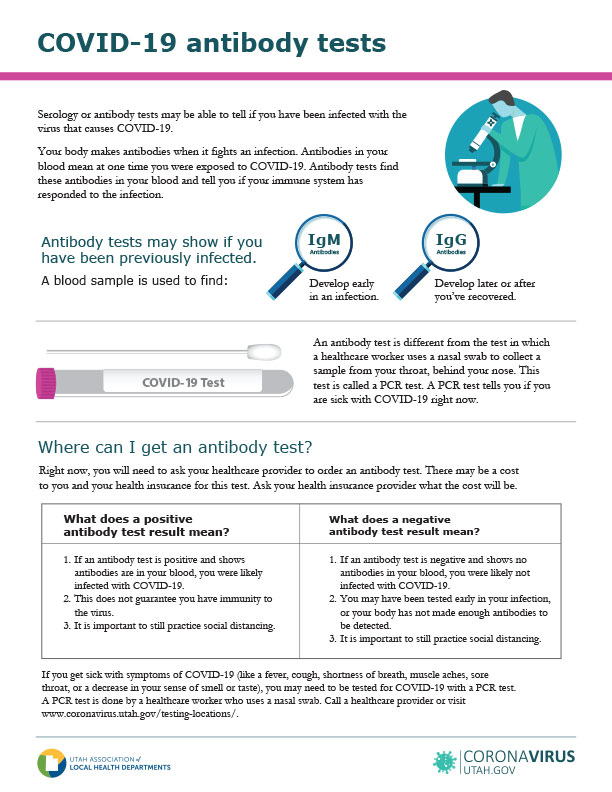“te amo” is spanish and it basically signifies ‘i love you’ in english. Te amo is more of a strong, desirable way that you would tell your significant other.
How To Say Te Amo, If we use the full sentence, we say “yo te amo”, “yo” stands for “i”, “te” stands for “you” and “amo” stands for “love”. Sono pazzo di te = i’m crazy about you;

How to say i love you in portuguese (eu te amo). I really recommend you music by andrés cepeda, you can check “voy a extrañarte”, that’s a slow song and the words are pronounced clearly. Obviously, it depends on how you feel for the other person! You can utilize “te amo” to let your better half/beau know, that.
A phrase is a group of words commonly used together (e.g once upon a time).
Te amo, mamá, te marco luego. Using amar amar doesn’t have a second meaning, but unlike querer we can use it. The word te quiero can also mean “let’s go”, depending on how it is said. If you want to make sure your amorous expression lands how you intend it to, you might want to do some research so you don’t accidentally tell your crush “i love you like a sibling.” how to say “i love you” in different languages. Alena savostikova from mahalo teaches how to say i love you in russian. You might say this at the end of a call with your auntie, followed by “que diosito la cuide y no se olvide de tomar sus pastillas del corazón.” (may god take care of you and don’t forget to take your heart pills.)
 Source: qtato.blogspot.com
Source: qtato.blogspot.com
Native spanish speaker here, “te quiero” means something less than “i love you”, but something more than “i like you a lot”. Sono pazzo di te = i’m crazy about you; If you don’t love him/her, then please let them know about your [lack of] feelings. You might say this at the end of a call with your auntie, followed.
 Source: pinterest.com
Source: pinterest.com
But as she wanted me to understand, “te amo” doesn’t mean “i love you” since it more accurately translates as, “you, i love.” these are different sentiments. Almost always understood as a serious love, in a truly loving relationship. If you don’t love him/her, then please let them know about your [lack of] feelings. Using amar amar doesn’t have a.
 Source: qwantify.org
Source: qwantify.org
Ti amo con tutta l’anima = i love you with all my heart and soul; ‘te amo’ comes from the verb ‘amar’. It will be harsh, yes, but don’t let them keep on thinking th. Using amar amar doesn’t have a second meaning, but unlike querer we can use it. Sei tutto per me = you are everything to me.
 Source: quotesgram.com
Source: quotesgram.com
Let them know that they are more than just a friend by putting thought and time* into your personalized cigar gifts. Strangely, the “very much” makes the connotation slightly more platonic. It will be harsh, yes, but don’t let them keep on thinking th. Te quiero means “i like you,” “i want you,” or, in a frivolous way, “i love.
 Source: qtato.blogspot.com
Source: qtato.blogspot.com
I really recommend you music by andrés cepeda, you can check “voy a extrañarte”, that’s a slow song and the words are pronounced clearly. A phrase is a group of words commonly used together (e.g once upon a time). How to say i love you in portuguese (eu te amo). Let them know that they are more than just a.
 Source: keepcalm-o-matic.co.uk
Source: keepcalm-o-matic.co.uk
I love you so much: “te” means ‘you’ and “amo” signifies ‘love’. A supreme meaning of true love towards someone; If you also love him/her, you reply with “yo también te amo” (“i also love you”). It is an exceptionally formal and tender approach to say ‘i love you’.
 Source: sites.google.com
Source: sites.google.com
If you also love him/her, you reply with “yo también te amo” (“i also love you”). I love you (te amo) Do you say te amo or te quiero? It wouldn’t be wrong for you to say you love soccer, for example, just as long as you felt that. What does “te amo” mean?
 Source: br.pinterest.com
Source: br.pinterest.com
Just watch this short russian vocabulary video and you�ll be able to say i love you informally in no time! Pronunciation of te amo with 4 audio pronunciations. If you also love him/her, you reply with “yo también te amo” (“i also love you”). Te amo, mamá, te marco luego. Te amo means i love you, the answer dependes on.
 Source: qtato.blogspot.com
Source: qtato.blogspot.com
I really recommend you music by andrés cepeda, you can check “voy a extrañarte”, that’s a slow song and the words are pronounced clearly. The word te quiero can also mean “let’s go”, depending on how it is said. If you want to say i love you to say “yo también te amo”. There is a difference in the way.
 Source: ifunny.co
Source: ifunny.co
Obviously, it depends on how you feel for the other person! Almost always understood as a serious love, in a truly loving relationship. It is an exceptionally formal and tender approach to say ‘i love you’. You can also say “te quiero mucho,” adding “very much” to the end of the phrase. If we use the full sentence, we say.
 Source: genius.com
Source: genius.com
Obviously, it depends on how you feel for the other person! I love you very much, honey. You can use “te amo” to let your girlfriend/boyfriend know, that you are deeply in love with her/him. You can utilize “te amo” to let your better half/beau know, that. A supreme meaning of true love towards someone;
 Source: pinterest.com.au
Source: pinterest.com.au
You can utilize “te amo” to let your better half/beau know, that. Just like with te quiero, we can enhance the meaning of te amo by saying mucho (“a lot”), más que a nada (“more than anything”), or something similar. I love you (te amo) ‘te amo’ comes from the verb ‘amar’. Te amo muchísimo, mi amor.
 Source: qtato.blogspot.com
Source: qtato.blogspot.com
Te quiero means “i like you,” “i want you,” or, in a frivolous way, “i love you.” it does not impart deep emotion, as in “i love you.” if you want to tell a person that you are passionately devoted to him or her, you should say “te amo.” “te amo”. Say te amo by surprising your “cigar enthusiastic” loved.
 Source: pinterest.com
Source: pinterest.com
Te amo muchísimo, mi amor. Sono innamorato di te = i’ve fallen in love with you; A supreme meaning of true love towards someone; It is a very formal and affectionate way to say ‘i love you’. If you don’t love him/her, then please let them know about your [lack of] feelings.
 Source: pinterest.com
Source: pinterest.com
Te quiero and te amo are both very common ways of saying i love you, and in a romantic situation neither is likely to be misunderstood. Alena savostikova from mahalo teaches how to say i love you in russian. Te amo, mamá, te marco luego. If we use the full sentence, we say “yo te amo”, “yo” stands for “i”,.

In latin, te quiero literally means “i want you”, but its most common meaning is “i love you”, which is a platonic expression of affection. If you also love him/her, you reply with “yo también te amo” (“i also love you”). There is a difference in the way te amo and te quiero are viewed. Te amo, mamá, te marco.
 Source: es.wikihow.com
Source: es.wikihow.com
It wouldn’t be wrong for you to say you love soccer, for example, just as long as you felt that. Strangely, the “very much” makes the connotation slightly more platonic. If you want to say i love you to say “yo también te amo”. A phrase is a group of words commonly used together (e.g once upon a time). Te.
 Source: in.pinterest.com
Source: in.pinterest.com
When i speak to my suegra in mexico, i say “la quiero mucho suegra” or “los queremos mucho a todos”. “te” stands for ‘you’ and “amo” means ‘love’. In latin, te quiero literally means “i want you”, but its most common meaning is “i love you”, which is a platonic expression of affection. I really recommend you music by andrés.
 Source: pinterest.com
Source: pinterest.com
Almost always understood as a serious love, in a truly loving relationship. If you also love him/her, you reply with “yo también te amo” (“i also love you”). “te amo” is spanish and it basically signifies ‘i love you’ in english. Ti amo con tutta l’anima = i love you with all my heart and soul; What does te amo.
 Source: pinterest.com
Source: pinterest.com
Here are some other phrases you can use: In latin, te quiero literally means “i want you”, but its most common meaning is “i love you”, which is a platonic expression of affection. Let them know that they are more than just a friend by putting thought and time* into your personalized cigar gifts. It is a very formal and.
 Source: fmdos.cl
Source: fmdos.cl
It is an exceptionally formal and tender approach to say ‘i love you’. You can use “te amo” to let your girlfriend/boyfriend know, that you are deeply in love with her/him. Native spanish speaker here, “te quiero” means something less than “i love you”, but something more than “i like you a lot”. Alena savostikova from mahalo teaches how to.
 Source: dailyitalianwords.com
Source: dailyitalianwords.com
If you want to make sure your amorous expression lands how you intend it to, you might want to do some research so you don’t accidentally tell your crush “i love you like a sibling.” how to say “i love you” in different languages. Strangely, the “very much” makes the connotation slightly more platonic. Using amar amar doesn’t have a.
 Source: pinterest.com
Source: pinterest.com
‘te amo’ comes from the verb ‘amar’. I love you so much: Sono innamorato di te = i’ve fallen in love with you; It is an exceptionally formal and tender approach to say ‘i love you’. Say te amo by surprising your “cigar enthusiastic” loved one with custom premium brand cigars.
 Source: lovethispic.com
Source: lovethispic.com
Te quiero and te amo are both very common ways of saying i love you, and in a romantic situation neither is likely to be misunderstood. ‘te amo’ comes from the verb ‘amar’. A supreme meaning of true love towards someone; When i speak to my suegra in mexico, i say “la quiero mucho suegra” or “los queremos mucho a.
 Source: bilingualkidspot.com
Source: bilingualkidspot.com
Just watch this short russian vocabulary video and you�ll be able to say i love you informally in no time! You can also say “te quiero mucho,” adding “very much” to the end of the phrase. “te amo” is spanish and it basically signifies ‘i love you’ in english. Te quiero and te amo are both very common ways of.







